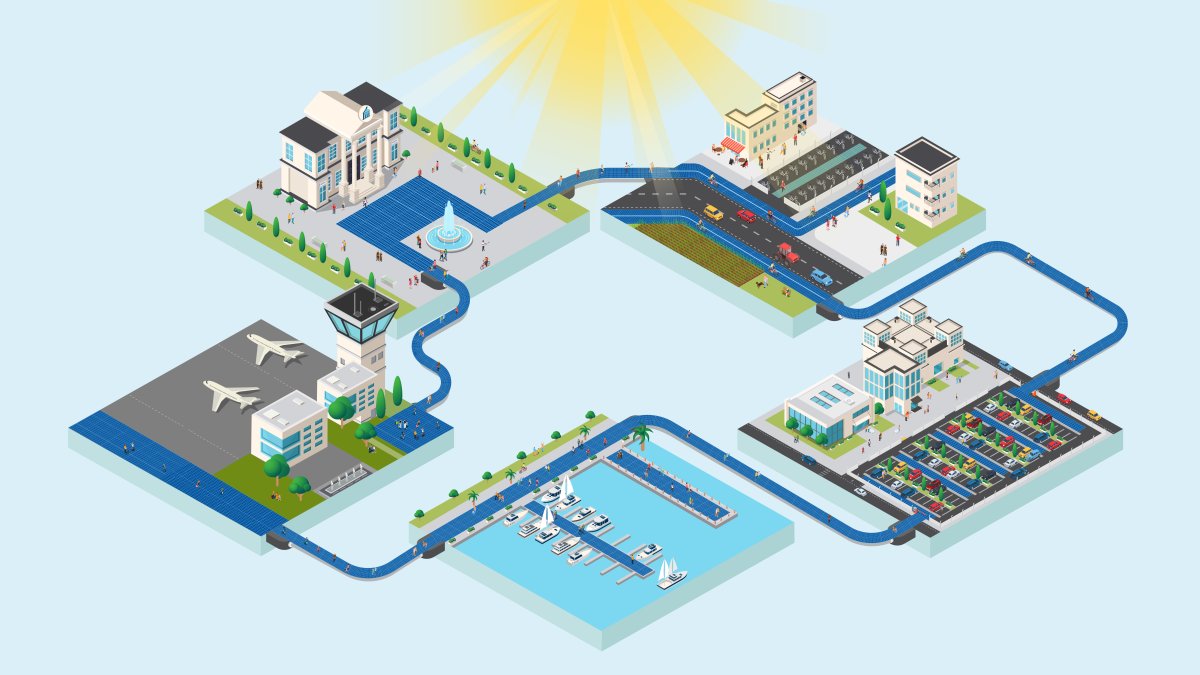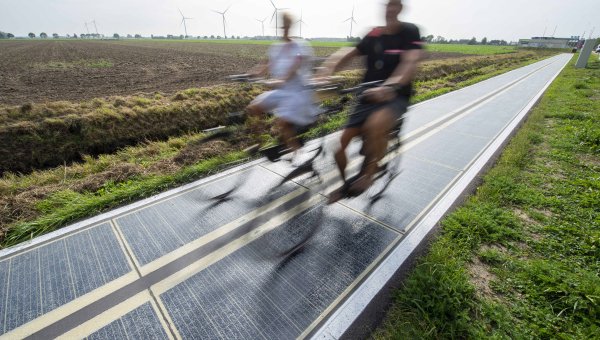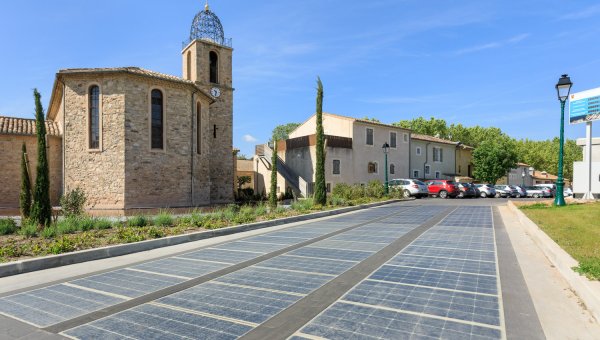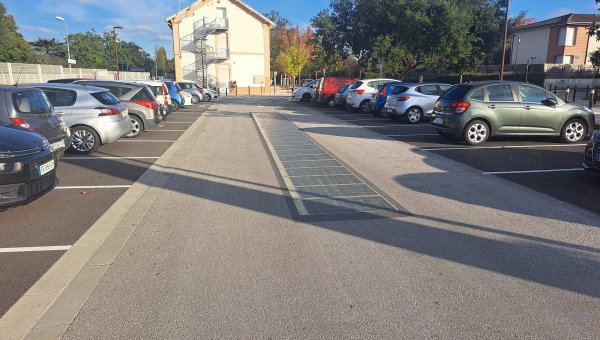What we offer
Our solutions for State and Local Authorities

Our solutions for State and Local Authorities
Control your electricity bills without spoiling your assets!
State and local authorities are involved on a daily basis in the energy transition in the area of their jurisdiction. However, issues of financing, acceptability, space and the resilience of these new energy sources in towns, villages and rural areas can prove complex.
With Wattway solutions you can make new use of abundant land to develop your solar potential. Road infrastructure belonging to states and local authorities (forecourts, car parks, cycle paths, pavements, etc.) covers large areas in terms of reconciling photovoltaic installations with visual unobtrusiveness and respect for the landscape in these areas. By facilitating access to low-carbon energy, our solutions are sustainable, meet your growing energy needs and help your constituents keep their bills down.
What we offer
Wattway PLUS:
local energy generation
Wattway PLUS is a turnkey photovoltaic solution for generating energy locally for your own needs. The solar power plant is installed on your transport infrastructure over an area of several hundred or thousands of square metres to generate renewable energy locally for your own needs.
The energy generated is fed directly into your buildings and consumed there.
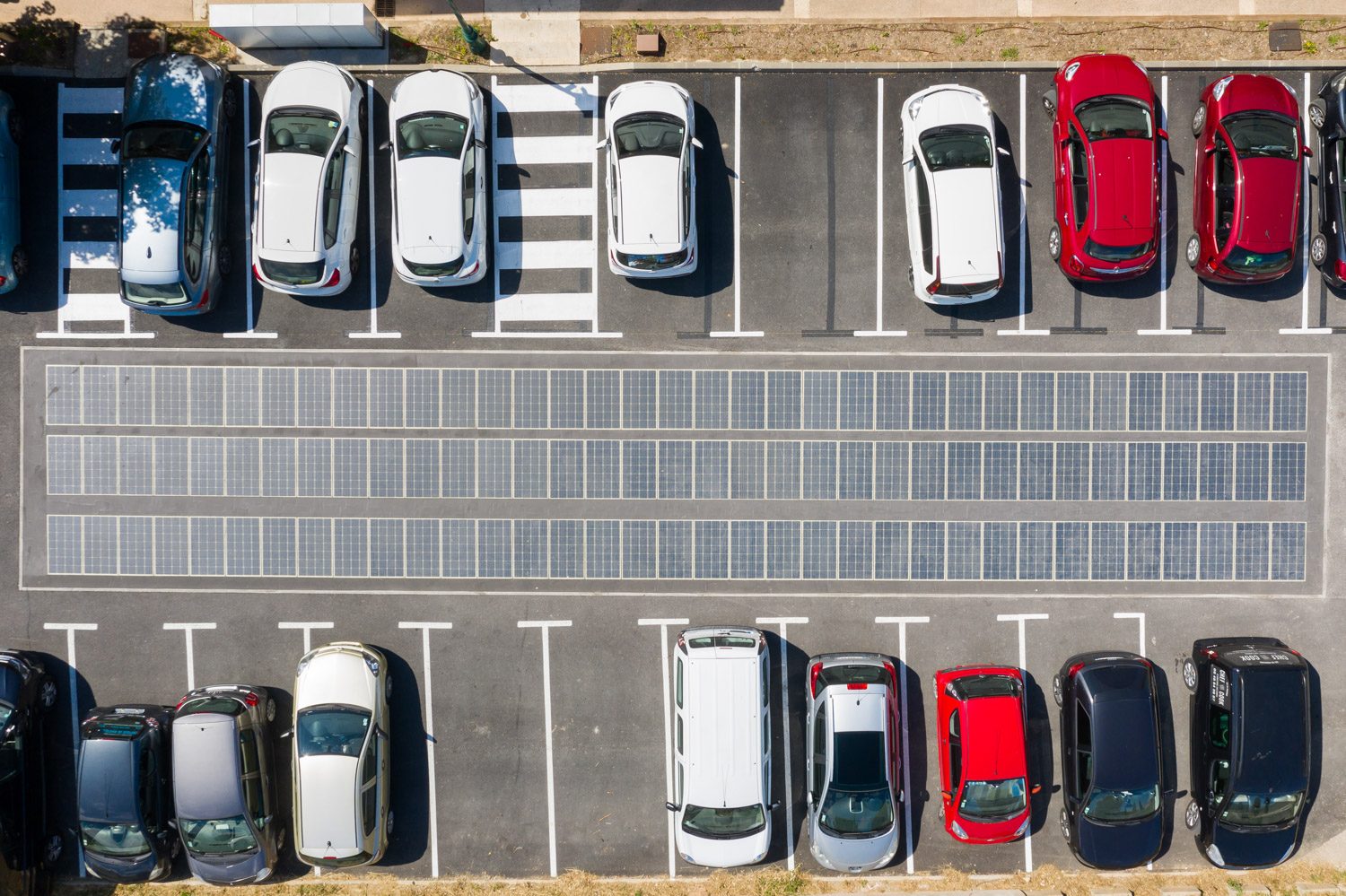
Benefits:
-Your electricity bills are reduced
-Your energy dependence is reduced
-The appearance of your property remains unspoiled
-You generate your own renewable energy
-You generate your own renewable energy
Wattway PACK:
energy self-sufficiency
Wattway PACK is a photovoltaic solution, a kind of autonomous electrical outlet on a traffic bearing surface, which provides an autonomous power supply for all types of electrical equipment near the road, cycle path or walkway in both urban and rural areas. Covering only a few square metres of ground, this solution is useful when the power grid is non-existent or remote and therefore difficult and/or costly to connect to.
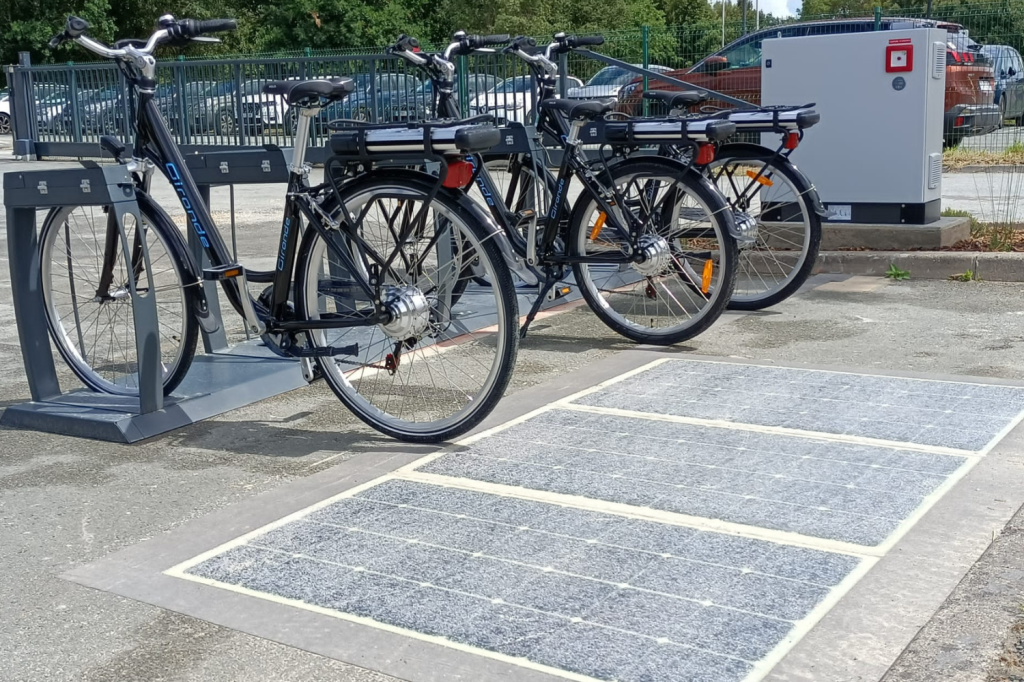
Benefits:
-Short installation times
-Reduced inconvenience to users during works
-Reduced installation costs
-The appearance of the location remains unspoiled with an unobtrusive solution
-Autonomous power supply provided for equipment
Where can Wattway be installed in a municipality?
Our advantages
Wattway addresses a number of issues:
Our projects
Prerequisites for installing Wattway
Here are some key points to help you get started:

Ascertain your needs
Do you wish to reduce your energy bills by using a system to produce your own energy for use in your buildings? Our Wattway PLUS local own consumption solution is just what you need! Do you wish to install electrical equipment (bicycle charging point, pedestrian safety system, etc.) on the traffic route, but there is no nearby power supply? Our Wattway PACK energy self-sufficiency solution for equipment is just what you need!
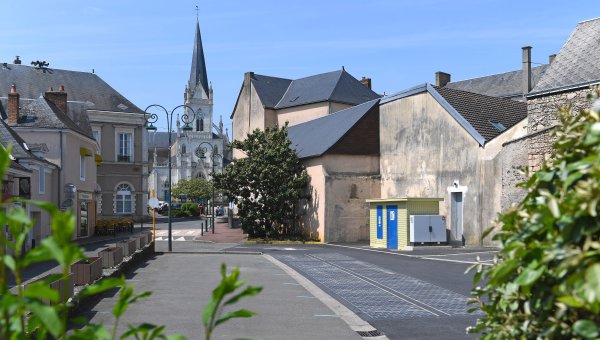
Identification
Choose a flat, non-shaded site with an asphalt or concrete surface in good condition. For Wattway PLUS: record your annual energy consumption and its purchase price. This information will be used to design and calculate the profitability of your project. For Wattway PACK: identify the type of equipment to be powered, its rated power (W) and its intended operating hours. This information will be used to design and calculate the profitability of your project.
Example of the deployment of a Wattway plus solution
A local authority deployed the Wattway PLUS solution on the surface of an existing cycle path over a length of 2 km.
The local authority decided that the generated electricity should be:
- fed into one or more adjacent public buildings and consumed for its own needs directly on location;
- fed directly back into the concessionary power grid.
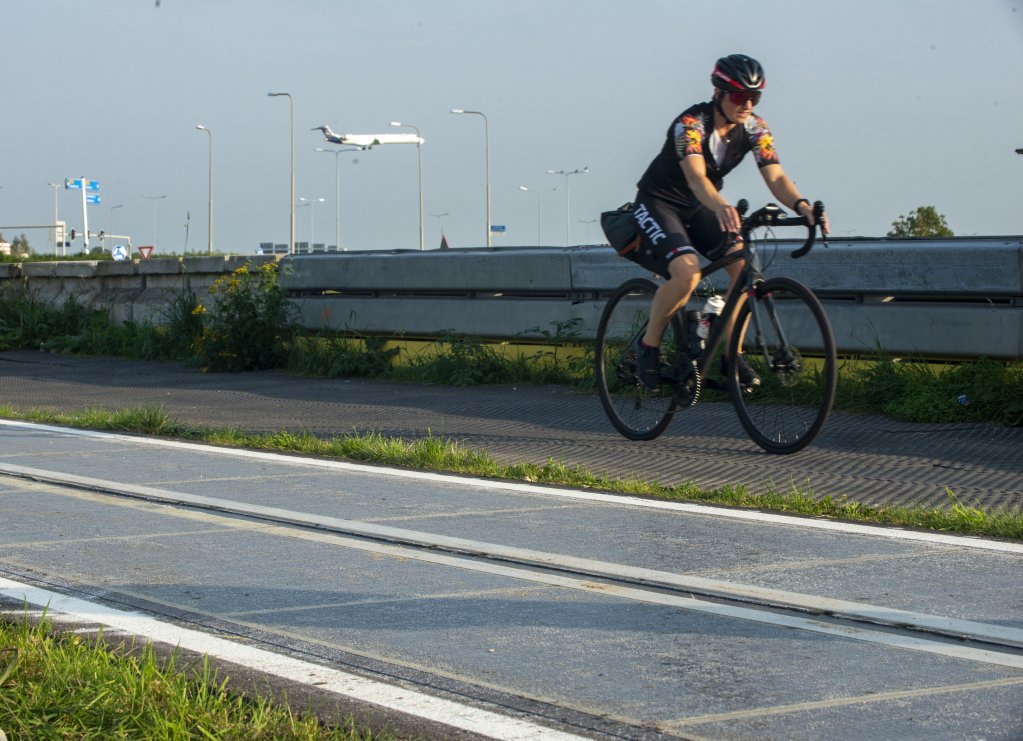
The installation of a Wattway photovoltaic power plant on a 2 km length of cycle path accounts for a nominal power output of around 1 MWp and, depending on the geographic location and the amount of sunlight, could generate electricity amounting to the following (subject to site conditions and shading):
- Munich in Germany: 850 MWh/year
- Rome in Italy: 900 MWh/year
- Marseille in France: 1.1 GWh/year
For reference, in France, the average annual electricity consumption:
- of a public swimming pool is 1.5 GWh/year
- of a 500 m² administrative building is 125 MWh/year
Documentation for downloading
Wattway PLUS
commercial specifications
Find out about the commercial specifications
of the Wattway PLUS solution
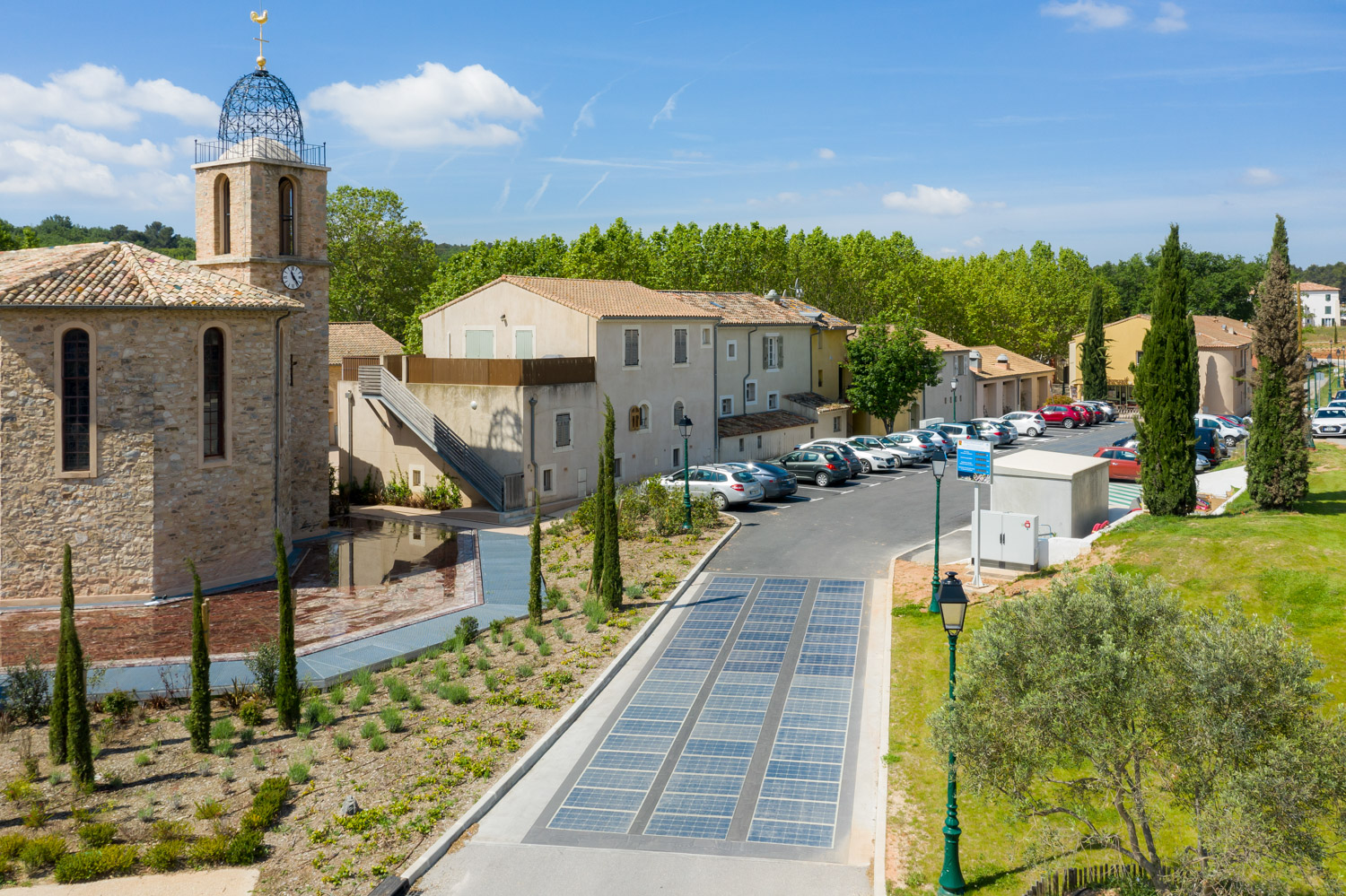
To find out more
-
Practical instructions for the Wattway PLUS solution for car parks
-
Practical instructions for the Wattway PLUS solution for cycle paths
-
Practical instructions for the Wattway PLUS solution for forecourts
-
Practical instructions for the Wattway PLUS solution for ports
-
Practical instructions for the Wattway PLUS solution for airports
Wattway PACK
commercial specifications
Find out about the commercial specifications
of the Wattway PACK solution
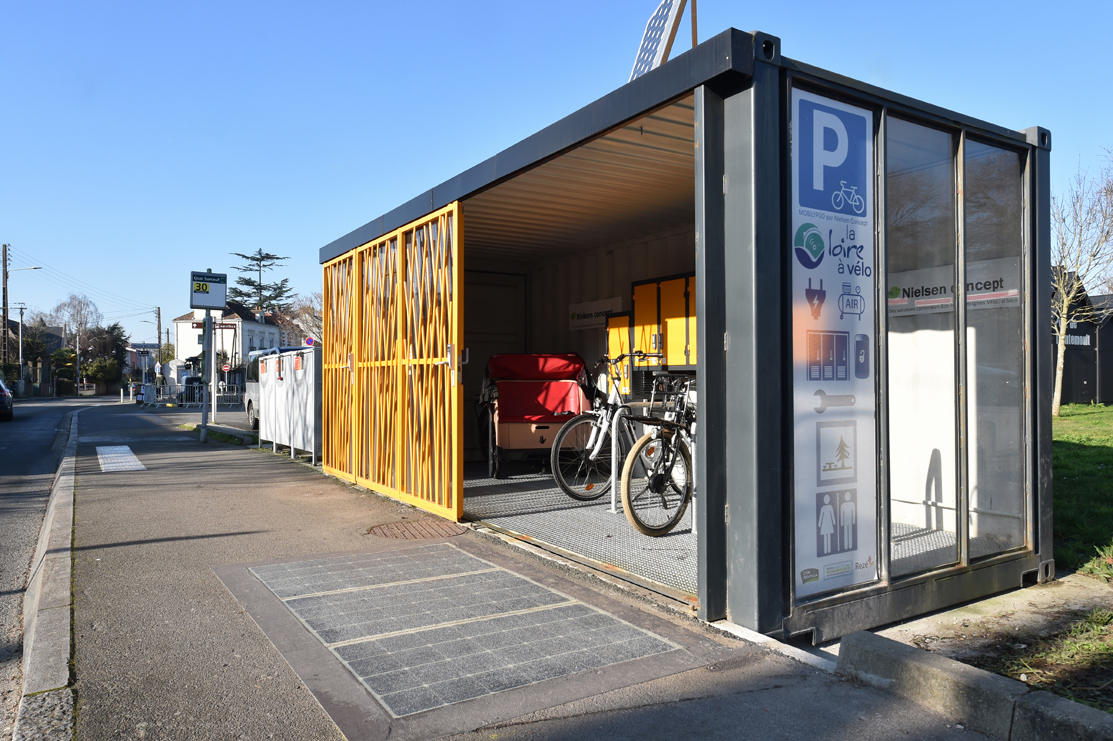
To find out more
-
Practical instructions for the Wattway PACK solution for safe pedestrian crossings
-
Practical instructions for the Wattway PACK solution for bicycle charging points
-
Practical instructions for the Wattway PACK solution for bicycle meters
-
Practical instructions for the Wattway PACK solution for secure bicycle shelters
-
Practical instructions for the Wattway PACK solution for cameras
-
Practical instructions for the Wattway PACK solution for smart solar benches

